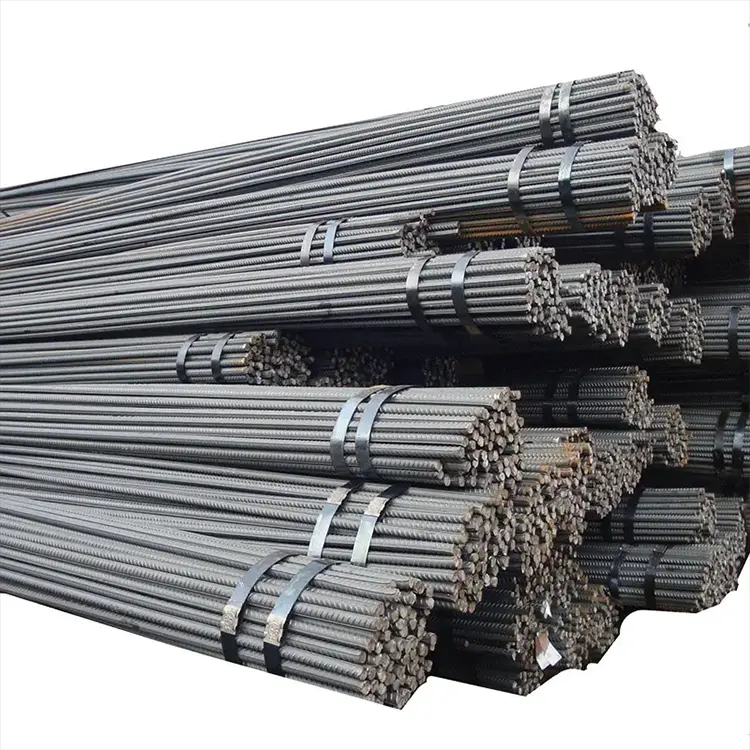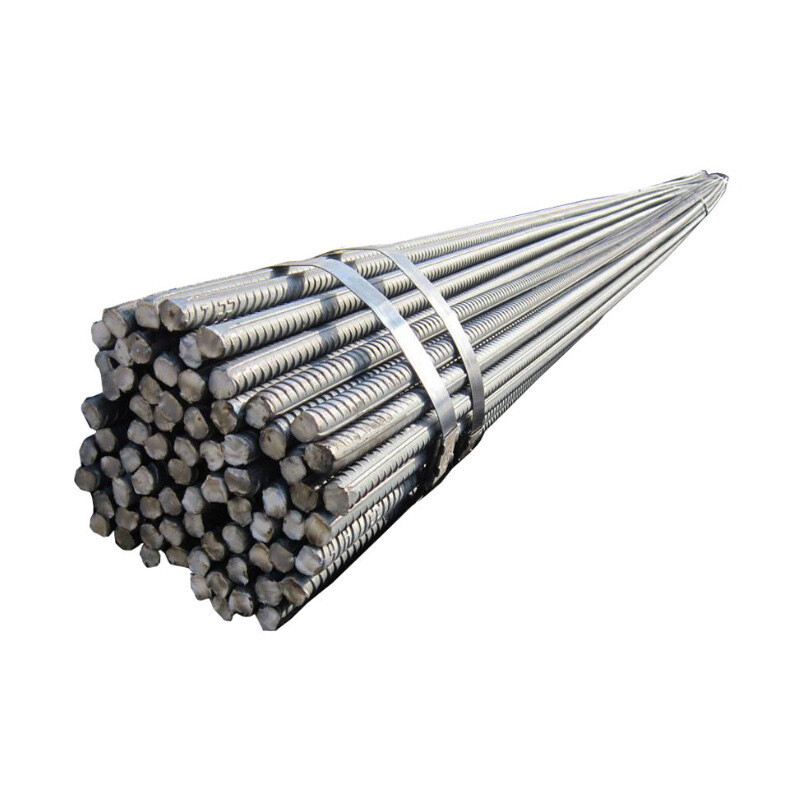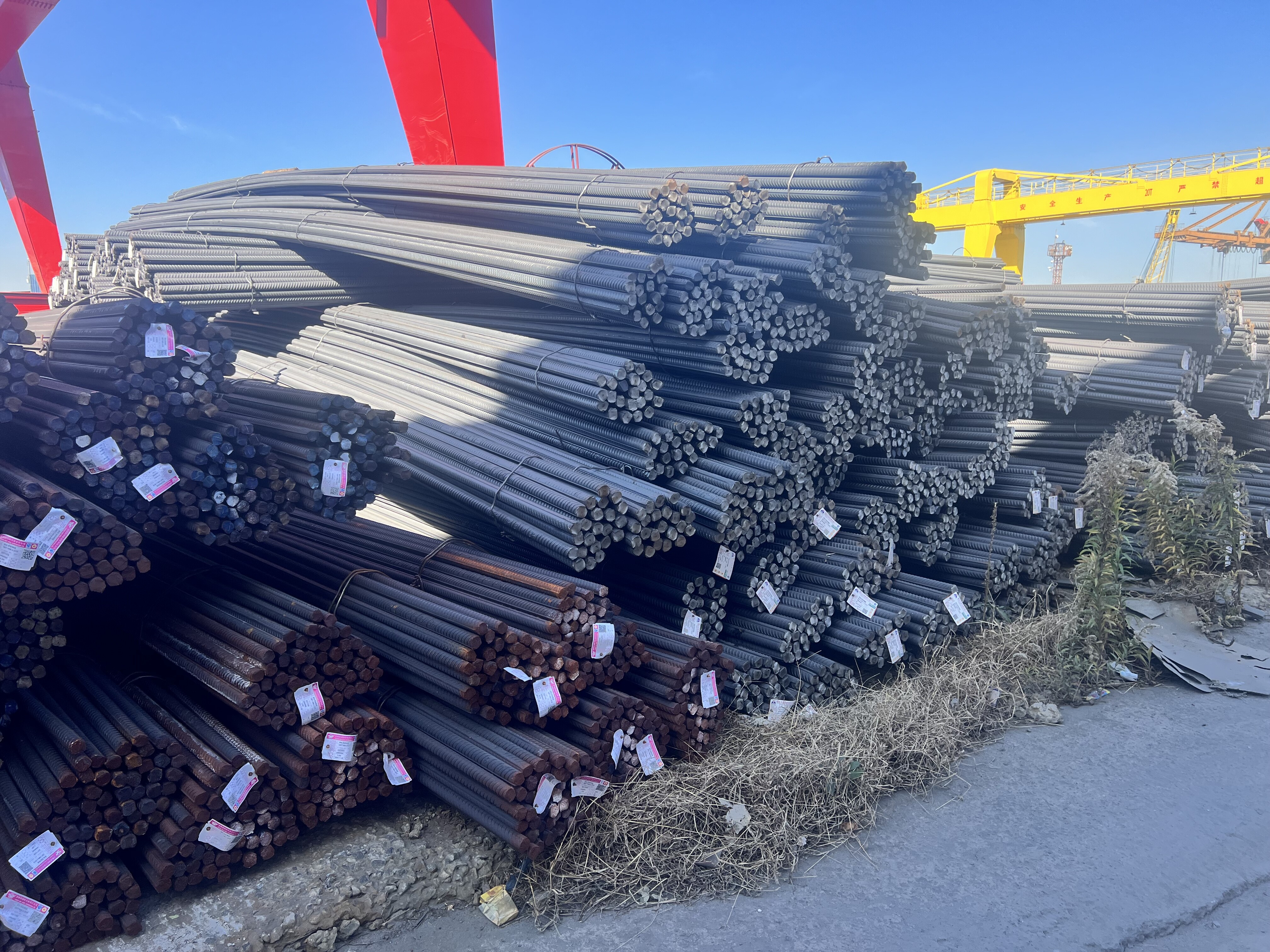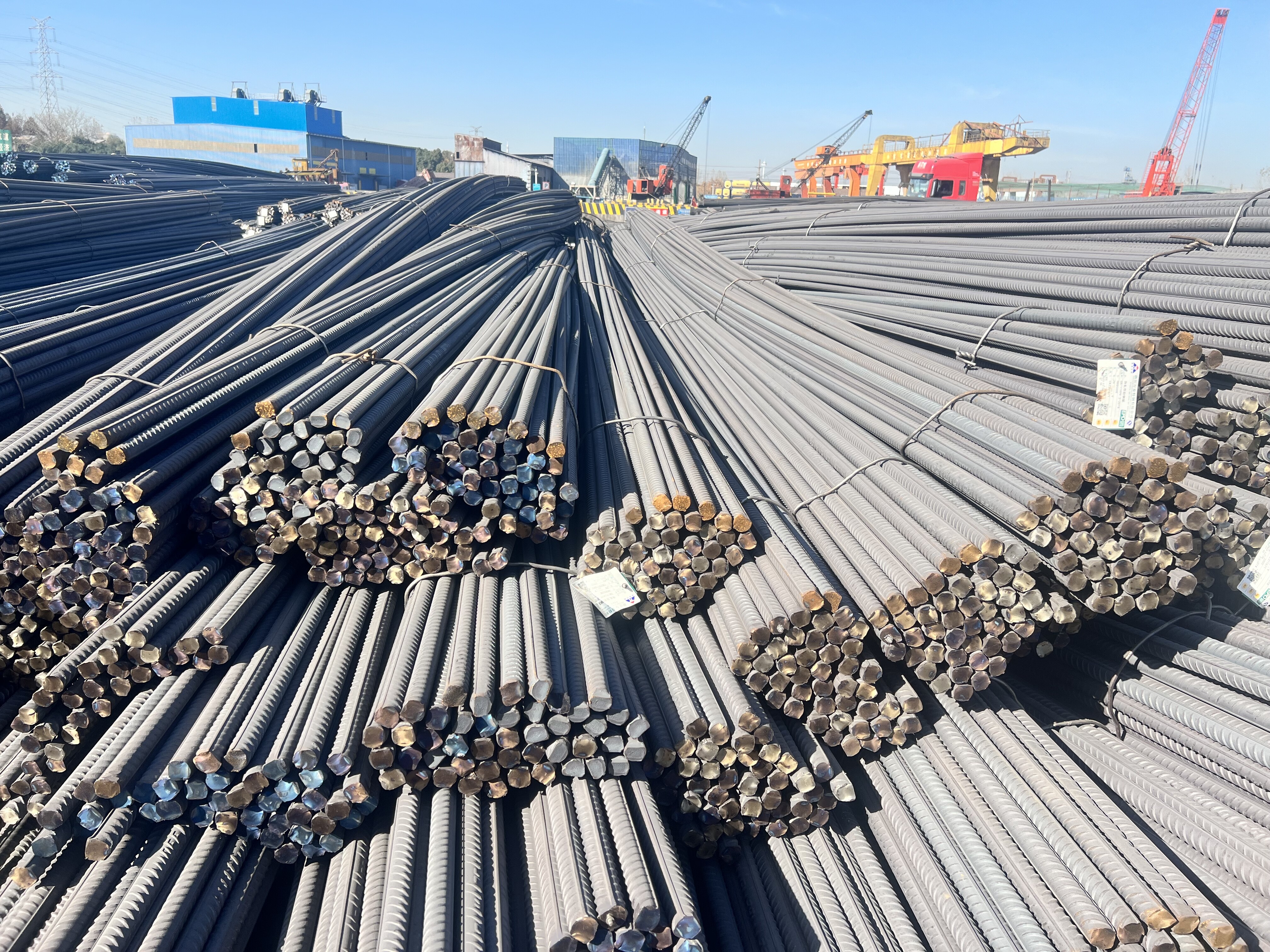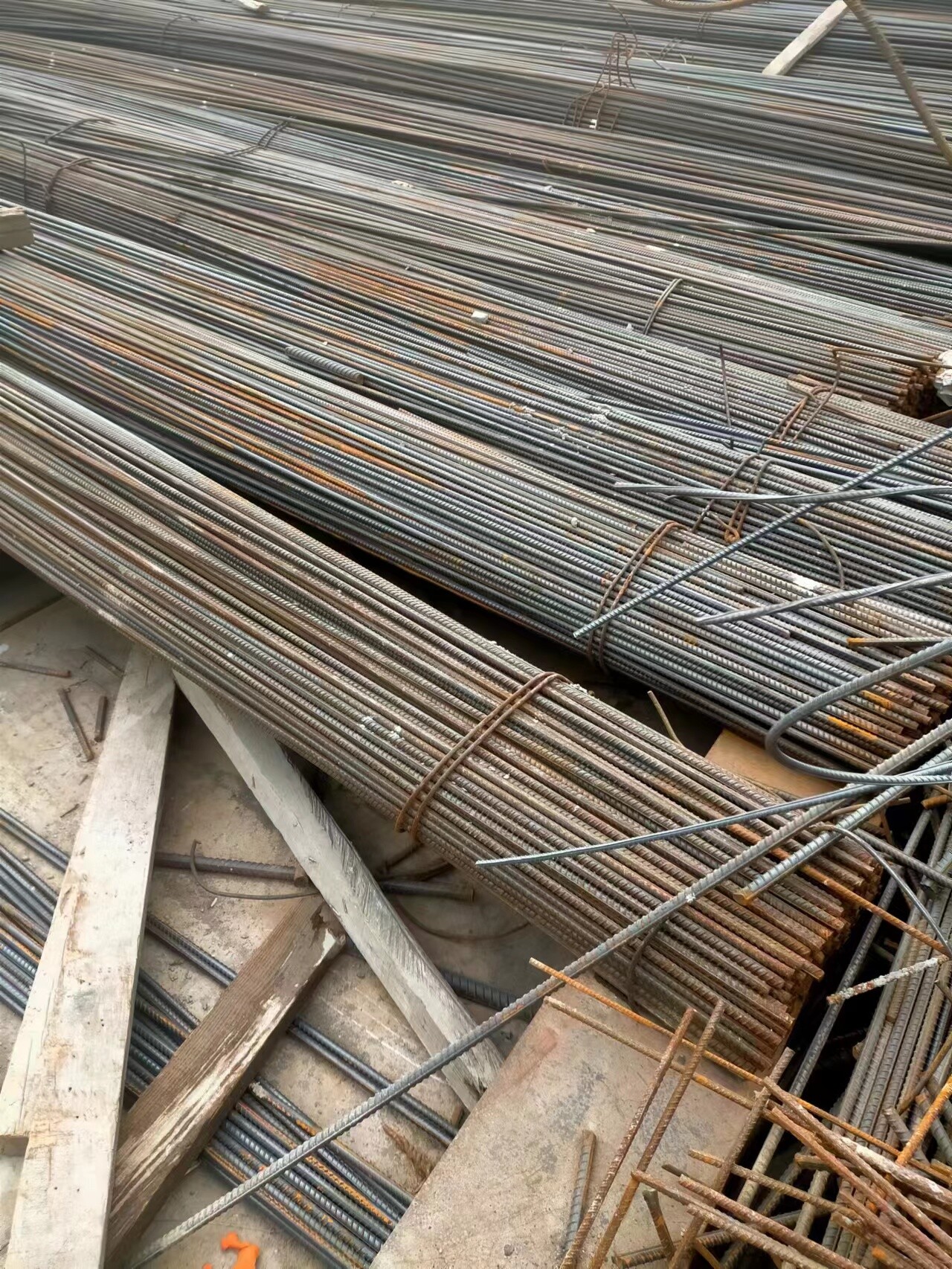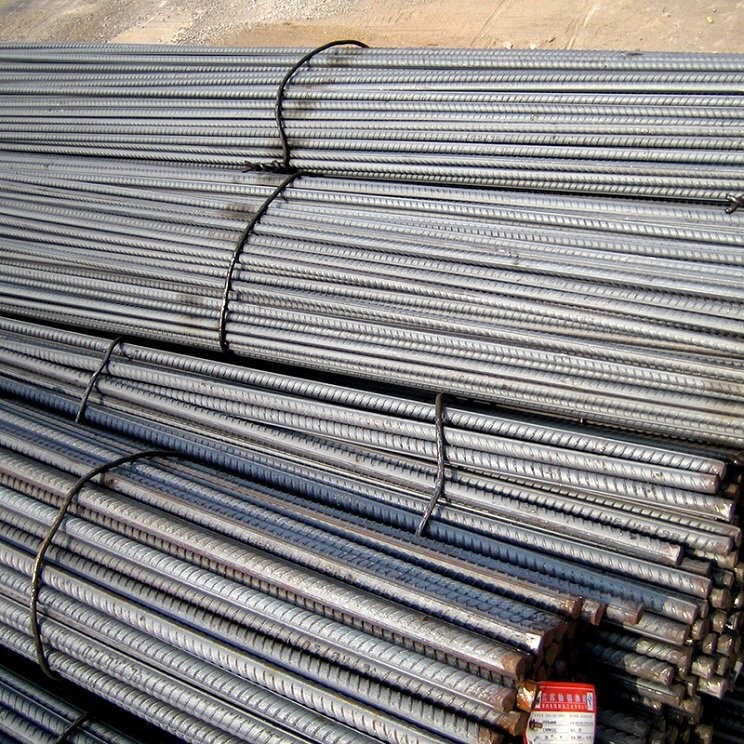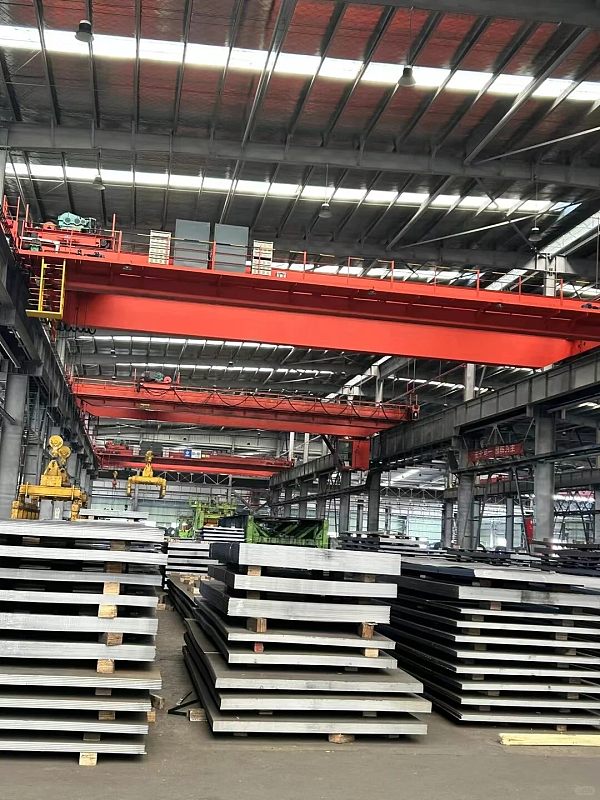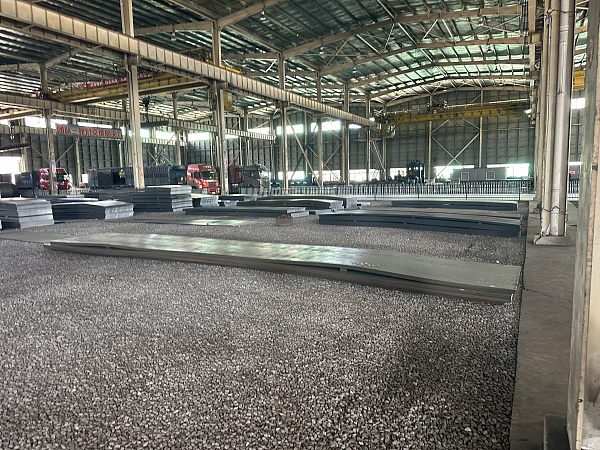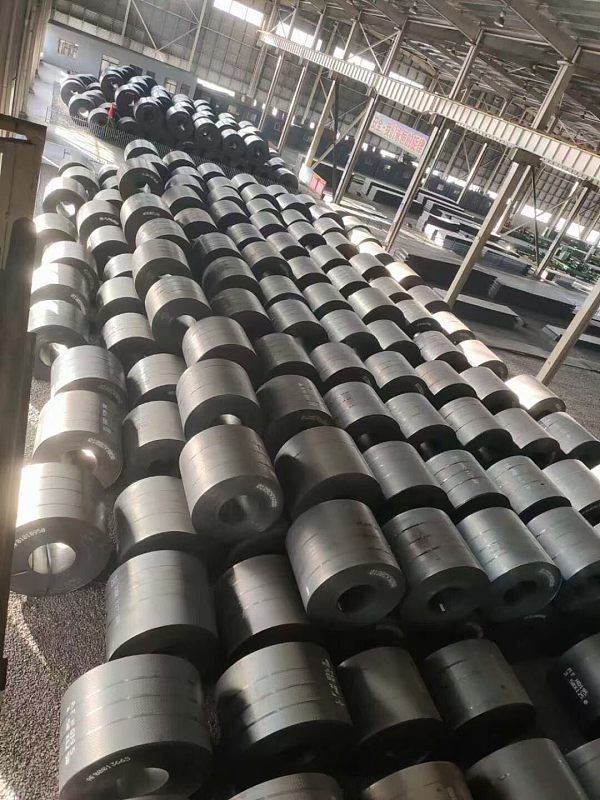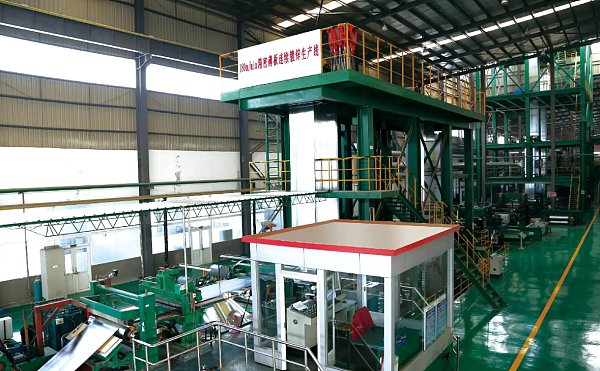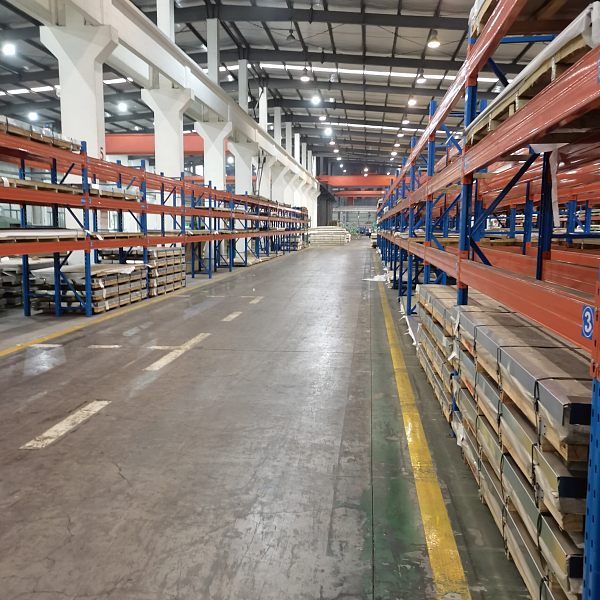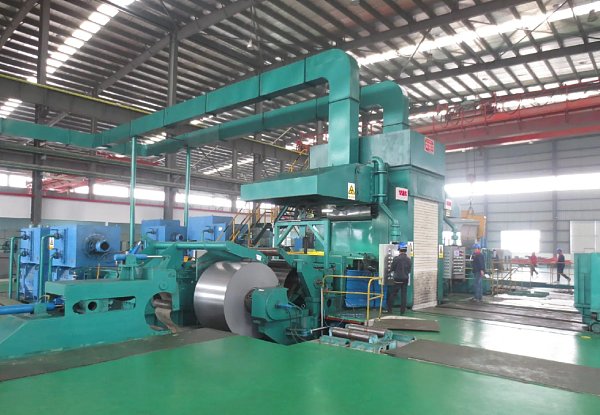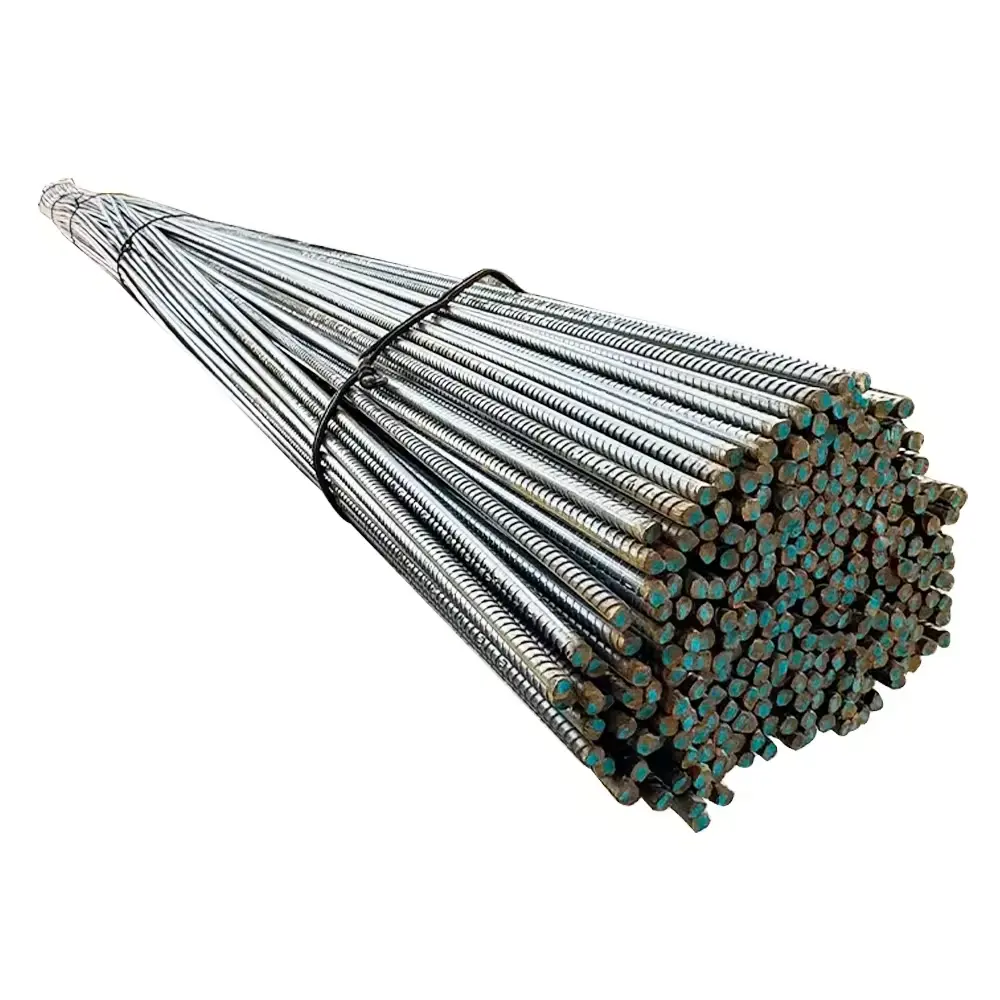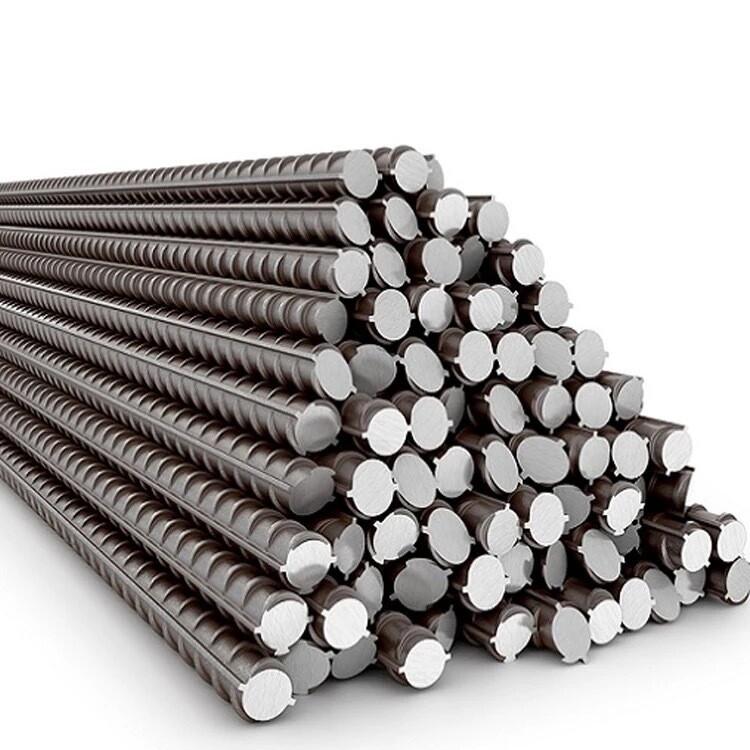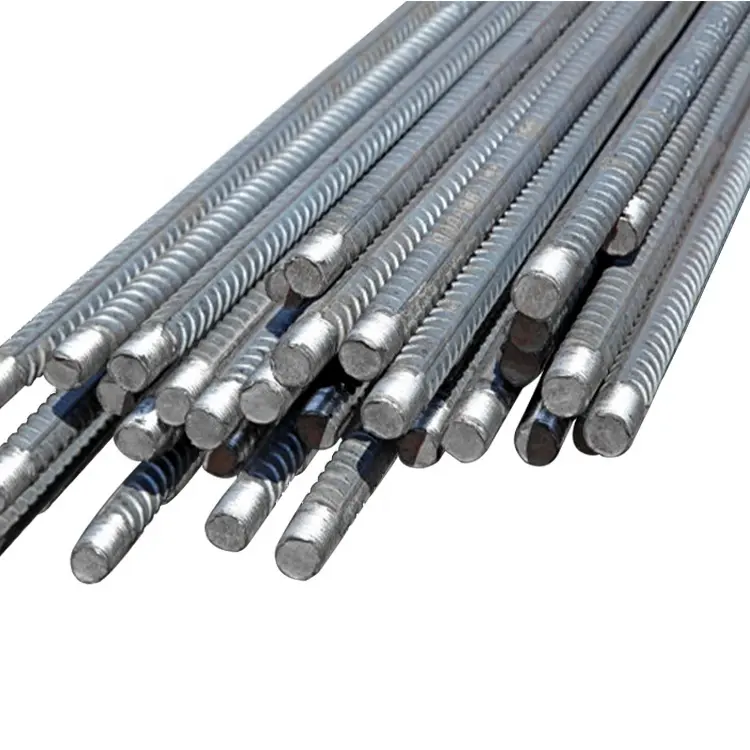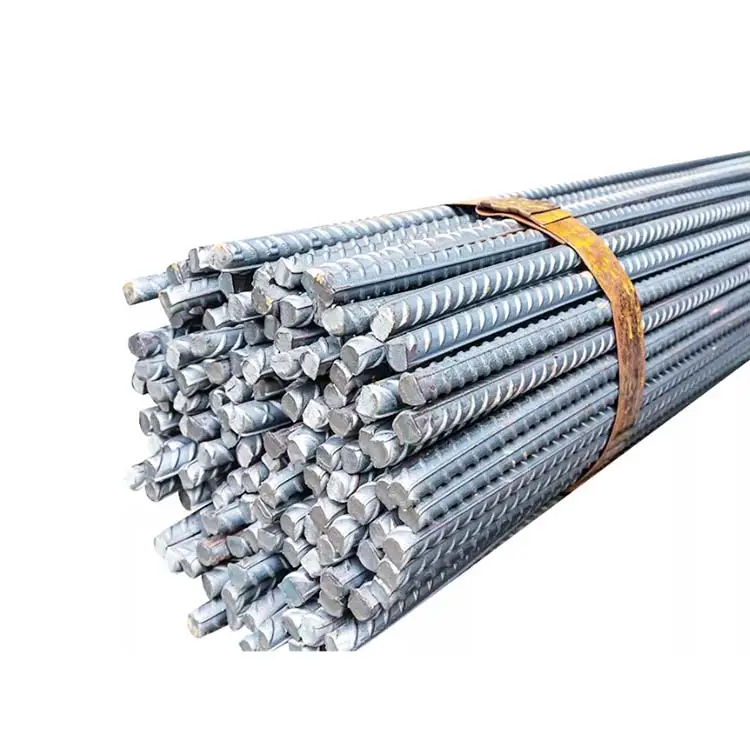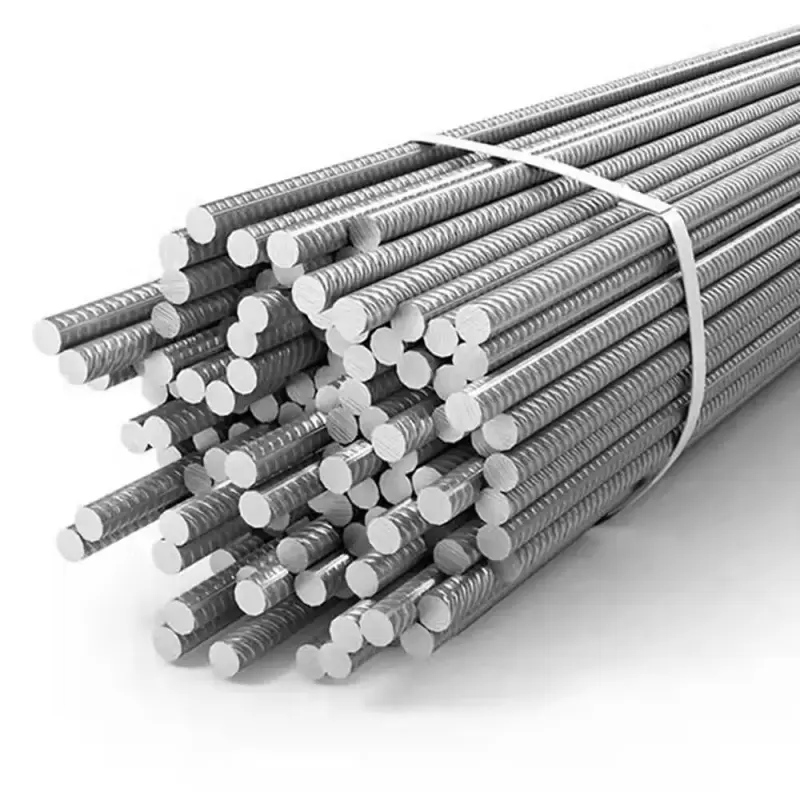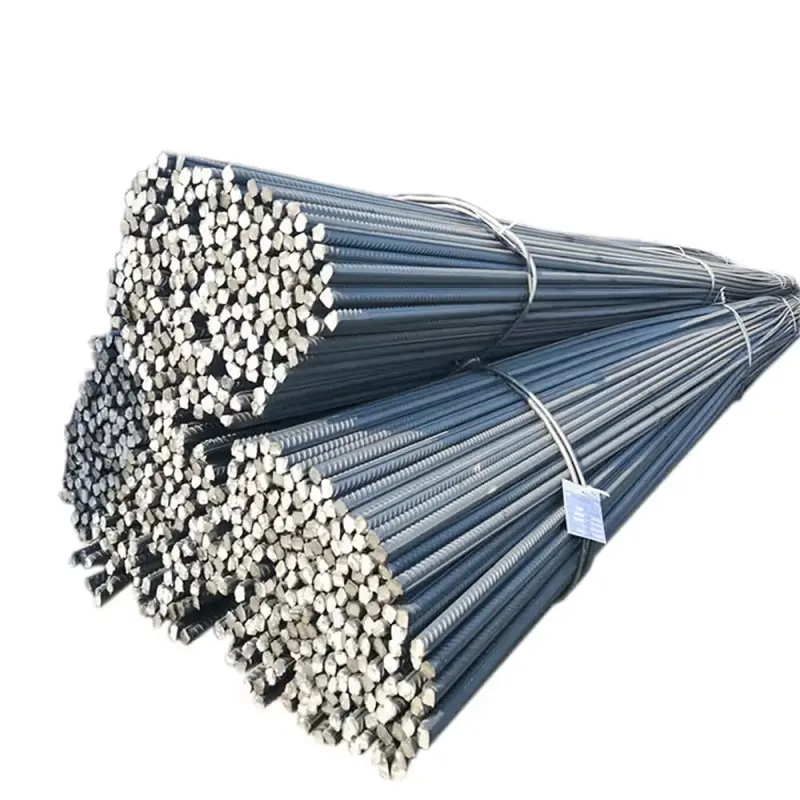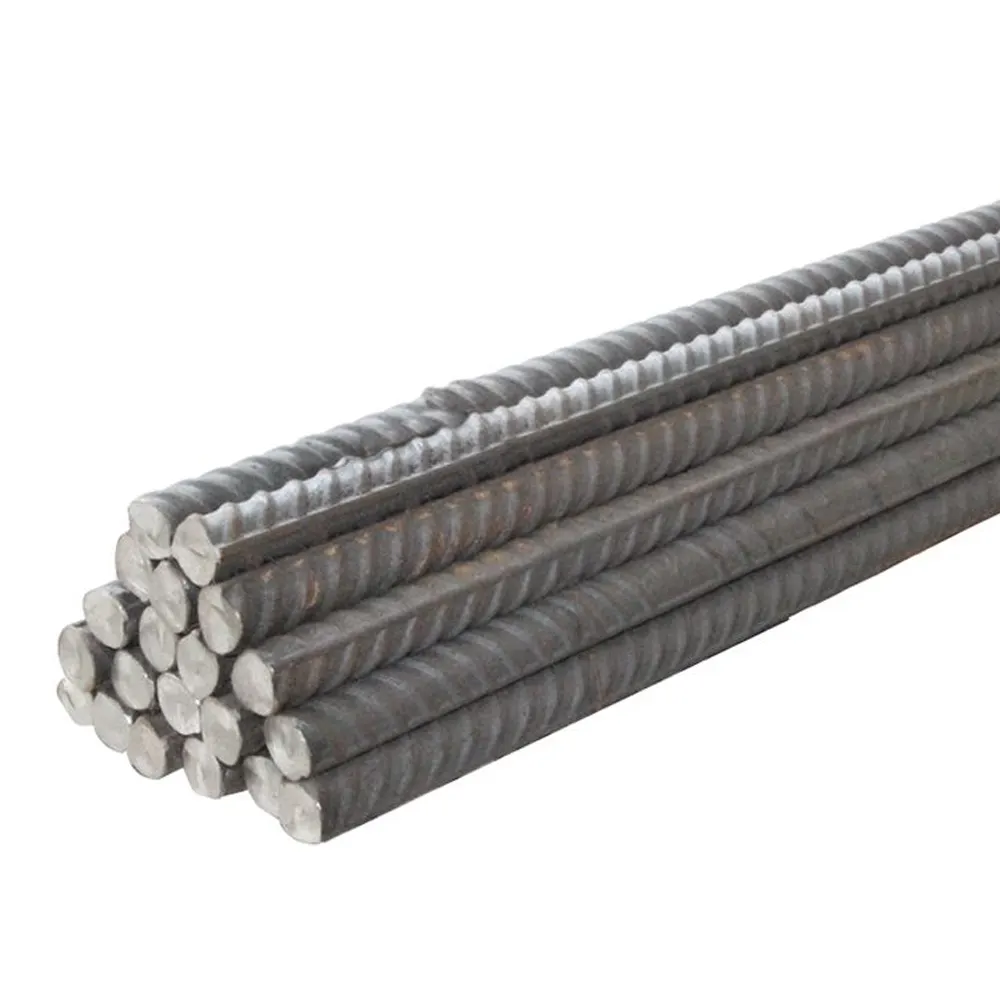PRODUCTS

Steel Rebar Overview
Steel rebar, also known as reinforcing bar, is a common steel product used in reinforced concrete structures to improve their tensile strength. Rebar plays a crucial role in construction by strengthening concrete and enabling it to withstand the forces of tension, bending, and shear. Steel rebar is available in a variety of grades and sizes, designed to meet the specific structural demands of buildings, bridges, highways, and other infrastructure projects. The surface of rebar typically features ridges or patterns that enhance bonding with concrete, providing better support and stability to reinforced concrete structures.
Key Features of Steel Rebar
- High Tensile Strength: Steel rebar is known for its excellent tensile strength, which helps reinforce concrete in bearing heavy loads, preventing cracks and failures under stress.
- Corrosion Resistance: High-quality steel rebar offers good corrosion resistance, especially when treated with coatings such as epoxy, galvanized, or other protective layers.
- Ductility: Rebar is highly ductile, allowing it to bend and stretch without breaking, which makes it easier to work with during construction while still maintaining its structural integrity.
- Durability: Steel rebar is highly durable, providing long-lasting strength and performance for concrete structures exposed to a range of environmental conditions.
- Versatile: Available in a wide range of sizes and grades, steel rebar can be customized for specific projects, including residential buildings, bridges, roads, and industrial applications.
Technical Specifications of Steel Rebar
Advantages of Steel Rebar
- High Strength and Load-Bearing Capacity: Steel rebar significantly enhances the tensile strength of concrete, making it ideal for structural applications where concrete alone is insufficient to bear heavy loads.
- Improved Bonding: The ribbed surface of rebar helps create a stronger bond between the steel and concrete, reducing the likelihood of slippage and improving overall structural performance.
- Corrosion Resistance: Coated rebar, such as epoxy-coated or galvanized rebar, offers enhanced resistance to corrosion, making it suitable for use in harsh environments such as coastal areas, highways, and bridges.
- Ductility: Steel rebar's ability to bend without breaking allows it to absorb tensile forces and stresses, ensuring the long-term durability and stability of reinforced concrete structures.
- Customizable Sizes: Steel rebar is available in a wide range of diameters, lengths, and grades, making it versatile enough to meet the specific needs of various construction projects.
Common Applications of Steel Rebar
- Building Construction: Steel rebar is used in the construction of foundations, walls, columns, and beams, providing the tensile strength needed to support and stabilize concrete structures.
- Bridges and Highways: Rebar is essential for reinforcing concrete in bridges, overpasses, and highways, where high tensile strength and durability are crucial for safety and longevity.
- Industrial Infrastructure: Used in large-scale industrial facilities, steel rebar is crucial for ensuring the structural integrity of concrete floors, foundations, and walls.
- Paving: Steel rebar is often used in road construction to enhance the strength and longevity of concrete pavement, especially in high-traffic areas.
- Marine Applications: Corrosion-resistant rebar is commonly used in marine construction, including piers, seawalls, and other structures exposed to harsh saltwater environments.
- Residential Projects: Rebar is widely used in residential construction, particularly for reinforcing concrete foundations, floors, and walls in houses and apartment buildings.
Types of Steel Rebar
- HRB400 Rebar: This is a common grade of steel rebar, offering good tensile strength (400 MPa) and elongation (≥ 14%), making it suitable for a wide range of construction projects.
- HRB500 Rebar: A higher-grade rebar with superior tensile strength (500 MPa) and elongation (≥ 12%), often used in heavy-duty applications such as high-rise buildings and bridges.
- Epoxy-Coated Rebar: For applications where extra protection against corrosion is needed, epoxy-coated rebar is a common choice, providing superior resistance to rust and environmental damage.
- Galvanized Rebar: Used for applications exposed to severe corrosion, such as in coastal areas or industrial facilities, galvanized rebar features a protective zinc coating that prevents rust and extends its lifespan.
Frequently Asked Questions (FAQ)
1. What is the difference between HRB400 and HRB500 rebar?
HRB500 has a higher yield and tensile strength than HRB400, making it suitable for more demanding applications, such as high-rise buildings, bridges, and large infrastructure projects.
2. Can steel rebar be used in marine environments?
Yes, steel rebar can be used in marine environments, particularly when coated with corrosion-resistant materials such as epoxy or galvanized coatings, which protect it from the harsh effects of saltwater.
3. What are the benefits of epoxy-coated rebar?
Epoxy-coated rebar provides enhanced protection against corrosion, making it ideal for use in environments with high humidity or exposure to chemicals, such as coastal areas, highways, and industrial facilities.
4. How do I choose the right size of steel rebar for my project?
The size of rebar depends on the load-bearing requirements of the structure, the design specifications, and the concrete mix. It is important to consult with a structural engineer to determine the appropriate size and grade for your project.
5. Is custom rebar available for specific projects?
Yes, steel rebar can be supplied in custom lengths, diameters, and grades to meet the specific requirements of your construction project. Contact us for more details or custom orders.
Steel rebar is an essential material for reinforced concrete, offering strength, durability, and versatility for a wide range of construction applications. Whether you're building a residential home, a commercial structure, or a large-scale infrastructure project, steel rebar provides the necessary tensile strength to ensure the stability and safety of your concrete structures. With options for corrosion resistance and custom sizing, steel rebar is a cost-effective solution for modern construction needs. For more information or to request a custom order, please contact us.
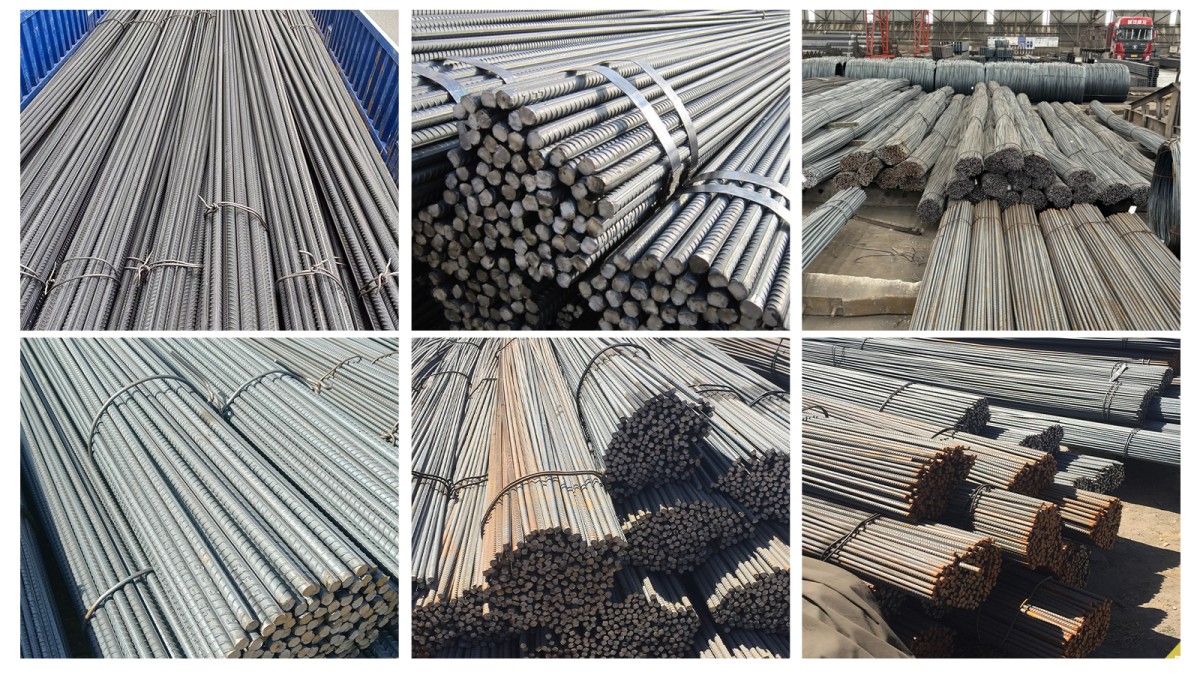
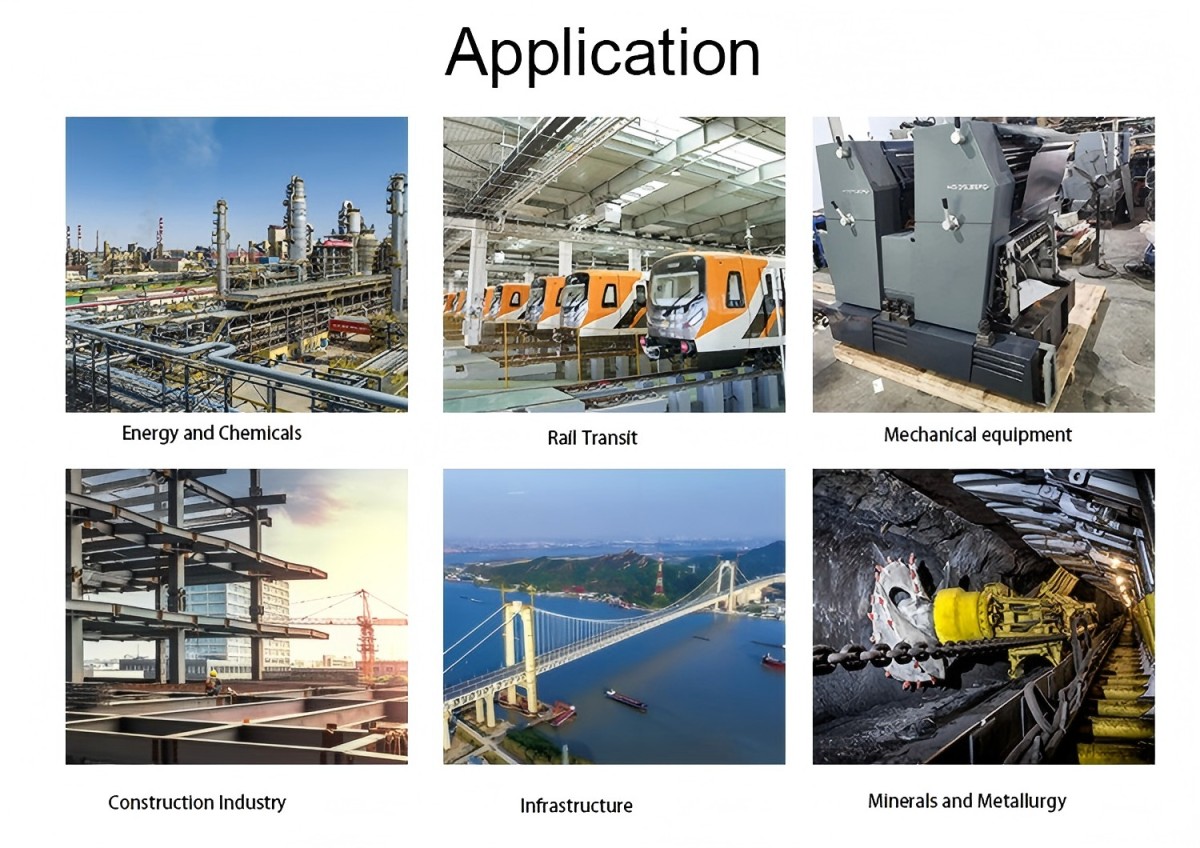
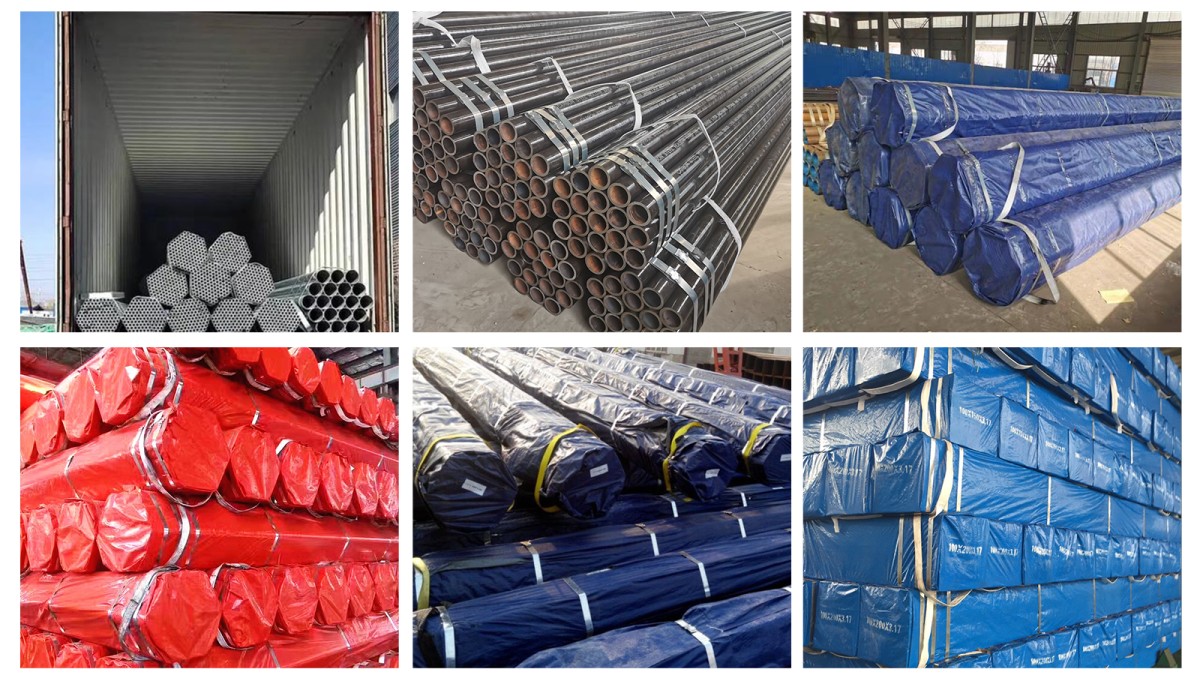
Q: Are You Manufacture or Trade Company?
A: We are the professional manufacturer of steel products located in China. Welcome to contact us and visit our factory before you place orders.
Q: How do you guarantee the quality?
A: We are the professional manufacturer of steel products located in China. Welcome to contact us and visit our factory before you place orders.
Q: Can I get free samples?
A: Of course you can. We can produce according to your samples or technical drawings. Contact us by whatsapp or email to get free samples and you will get the sample after 3-7 working days.
Q: What is the MOQ?
A: If you are scheduling to place a small quantity order or trial order, feel free to contact us, we can meet your requirements.
Q: Can you OEM or ODM?
A: Yes, we have a strong developing team. The products can be made according to your request.
Request A Quote?

